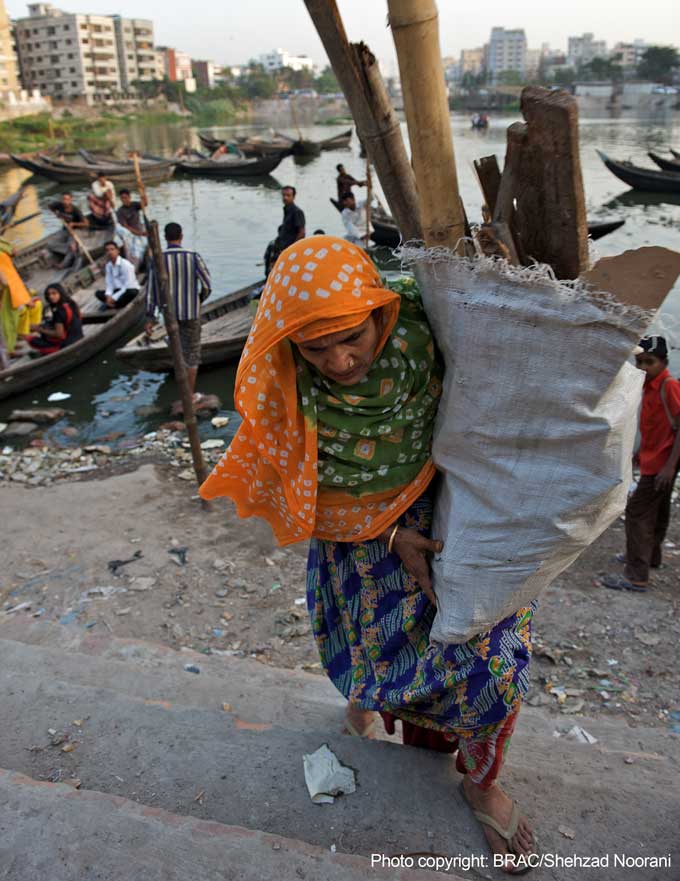Reading Time: 3 minutes
As the world moves rapidly towards a new policy agenda for the post-Millennium Development Goal (MDG) era, emerging priority themes include universal health coverage, sustainable cities, and the demand for human rights and accountability. It’s a fact that the world is rapidly urbanising with significant changes in our living standards, lifestyles, social behaviour and health. Thirty years ago, four out of every 10 people were living in cities, but by 2050 the UN predicts this number will grow to seven out of 10.
As the world moves rapidly towards a new policy agenda for the post-Millennium Development Goal (MDG) era, emerging priority themes include universal health coverage, sustainable cities, and the demand for human rights and accountability. It’s a fact that the world is rapidly urbanising with significant changes in our living standards, lifestyles, social behaviour and health. Thirty years ago, four out of every 10 people were living in cities, but by 2050 the UN predicts this number will grow to seven out of 10. The movement into urban areas outstrips the capacity of government to manage that change in ways that respect, protect and fulfil the rights of all people. The urban slums are dynamic physical, social and political spaces where the trends in development thinking and policy intersect and sometimes collide.
Bangladesh, one of the poorest and most densely populated countries in the world, has experienced rapid urban growth in recent decades. In recent years, urban population growth is about six per cent as opposed to less than one per cent in rural areas. This growth is mostly due to rural-to-urban migration where mostly poor populations relocate for better economic opportunities and settle in urban slums. Rapid urbanisation, coupled with the growth of urban slums, is likely to have profound implications on Bangladesh’s health profile according to research, especially on maternal and child health.
Human Development Indicators confirm Bangladesh experienced much sustainable progress in human development and poverty alleviation despite years of chronic deprivation, hunger and injustice. Over the last few decades, more promising achievements were observed in the area of health and family planning. It is inspiring that Bangladesh is currently on track to achieve the primary target of MDG 4 and 5 with a goal to reduce maternal and child mortality. Despite these achievements, the condition in urban slums is worse compared to urban non-slum areas with respect to health, nutrition, housing, water and sanitation. This makes urban health and development issues, especially of the slum dwellers, a high priority.
People living in marginalised spaces like slums in cities around the world have limited scope to engage with power structures, access resources and direct change in their own lives. Their voices are rarely heard in policy debate. There is much to learn from both conventional and unconventional actor’s experience in the health and development spheres.
Comprehending the urgency and importance of urbanisation and its impact, BRAC is implementing a community-based maternal, newborn and child health (MNCH) programme called Manoshi in urban slums of eight cities of Bangladesh since 2007. Currently, Manoshi reaches out to 6.3 million urban slum dwellers, seeking to bring about improvements in their health status through BRAC’s innovative approach of creating a trained frontline of community health workers and bringing healthcare services to the doorsteps of the beneficiaries. Manoshi endeavours to connect the community with health facilities by strengthening referral linkages and thereby ensuring a continuum of care from home to hospital and then back at home.
The frontline health workers of Manoshi are selected from the communities they serve and this helps them being accepted. In 2007 about 86 per cent of the delivery was at home while 14 per cent was at facilities – this has reversed after the intervention; and establishment of maternity centres and delivery centres have contributed a lot towards this behavioural change. Moreover, the community is being sensitised and the services provided respect mothers’ privacy and dignity.
Manoshi is now becoming a role model programme that can be replicated across other urban slums of the world to frame health development programmes to improve the lives of deprived and under-served communities.






